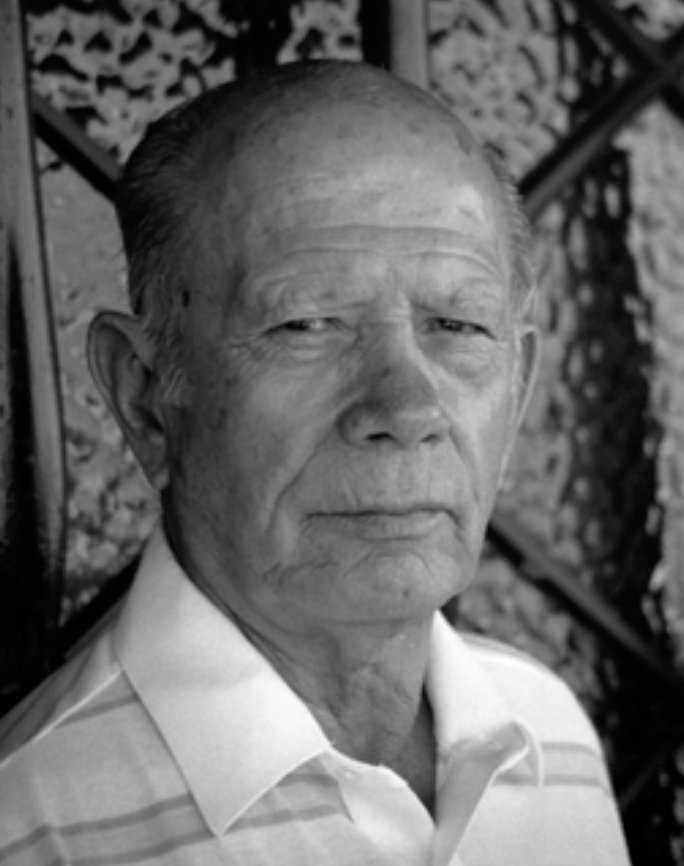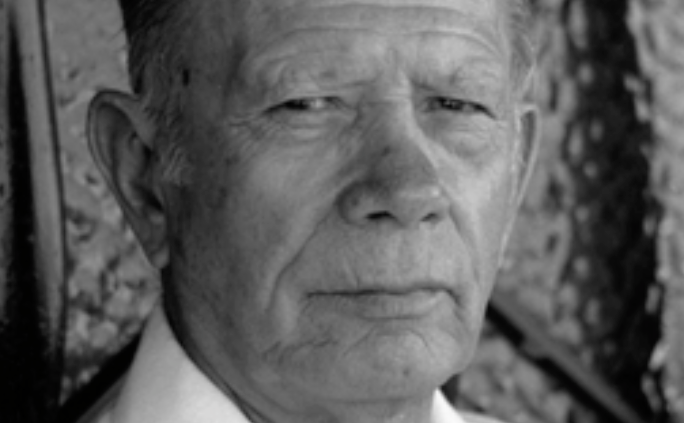Jesse Flores
 He rose out of the citrus fields of Southern California to become the first Mexican-born pitcher and the third Mexican-born player in the major leagues. From picking citrus in the fields he went to picking players from the fields and became one of the greatest baseball scouts in major-league history. Jesse Flores overcame hometown discrimination to almost singlehandedly build ballclubs for the Minnesota Twins. He was inducted into the Mexican Baseball Hall of Fame in 1987. In 1985 Flores was selected as the West Coast Scout of the Year. He spent 50 years in professional baseball.
He rose out of the citrus fields of Southern California to become the first Mexican-born pitcher and the third Mexican-born player in the major leagues. From picking citrus in the fields he went to picking players from the fields and became one of the greatest baseball scouts in major-league history. Jesse Flores overcame hometown discrimination to almost singlehandedly build ballclubs for the Minnesota Twins. He was inducted into the Mexican Baseball Hall of Fame in 1987. In 1985 Flores was selected as the West Coast Scout of the Year. He spent 50 years in professional baseball.
Jesus “Jesse” or “Jess” Flores Sandoval came from humble roots. He was born on November 2, 1914, in Guadalajara, Jalisco, Mexico, the son of Juan Flores and Fortina Sandoval. Juan cleaned stables and then became a fruit picker. He brought his family to the Orange County area of Southern California about 1923, settling in Campo Rojo (Red Camp) in La Habra, a workers’ camp made up mainly of people of Mexican heritage. Most were orange and lemon pickers; a packing house that employed many of the wives was located nearby. The 1930 census lists Jesse and his sisters, Inez and Mary, as fruit pickers and laborers. Jesse was just 15 years old, taking on a man’s job.
Jesse attended Washington Junior High (the author’s alma mater). As many young men of the time did, he dropped out after the eighth grade to work, picking citrus. Citrus companies set up baseball leagues to keep the workers happy. The ballplayers (peloteros) played on fields across the street from the packing house, near the train depot. Those ballfields are now part of Portola City Park, where Little League teams play. In 1994 the fields were renamed in Jesse’s honor: the Jesse Flores Sports Complex at Portola Park.
Flores played for the Los Juveniles team as a third baseman and relief pitcher. In 1938 the Chicago Cubs held a tryout camp at Wrigley Field in Los Angeles, most likely led by Truck Hannah, manager of the Los Angeles Angels and sometime scout for the Cubs. Jesse went to the tryout as a third baseman, but there were too many of them there, so he tried out as a right-handed pitcher, throwing a screwball, curveball, and fastball.
Flores made enough of an impression with the Cubs that they signed him, and he went to play in Bisbee, Arizona, for $80 a month. There he led the Class D Arizona-Texas League in wins, with a 24-6 record, earned run average (2.38), and winning percentage. He was promoted to Los Angeles in the Pacific Coast League in 1939. He held out for a $225-a-month contract before going 9-9 on the mound with a 3.54 ERA. He returned to Los Angeles in 1940, compiling a 7-5 win-loss record and a 4.43 ERA. On September 14 of that season Flores threw one of the best games of his career. He took a no-hitter into the ninth inning, but Marvin Gudat singled with two outs.
Flores was best known for throwing the screwball. A Cleveland newspaper quoted him as saying, “I hit a batter square in the head. He got up and walked down to first base. I figured then my fastball wasn’t fast enough. That’s how I started throwing the screwball.”
On January 19, 1941, Jesse and Consuelo M. Gomez were married in his hometown of La Habra. They raised four children – daughters Armida and Isabelle and sons Jesse Jr. and Steve. Both sons played minor-league baseball and then became scouts like their father before them.
The 1941 season saw Flores again with Los Angeles. He had a 12-15 record and improved his ERA to 3.23. In September Flores and outfielder-third baseman Peanuts Lowrey were sold to the Cubs by the Angels for cash and three players. They were to finish the season with the Angels and report to the Cubs for spring training.
Flores made his major-league debut on April 16, 1942, coming out of the bullpen, allowing four hits and getting the loss in an 11-6 win by the St. Louis Cardinals. He pitched in four games with the Cubs, going 0-1 with a 3.38 ERA. Deeming him not entirely ready for the big leagues, the Cubs sent him back to Los Angeles for the rest of the season. With Los Angeles he went 14-5 with a 2.63 ERA.
Before he left Chicago, Flores made his mark in another way. The Sporting News reported that Flores, Chico Hernandez, and Hi Bithorn recorded a Spanish-language broadcast to to be transmitted to South American countries by Cincinnati radio station WLW. It was the height of World War II, and the US was seeking to seal the loyalty and friendship of Latin American nations. Flores, Hernandez, and Bithorn, all Hispanics, said in the broadcast that baseball added greatly to cementing the friendship between the US and the Latin-American nations.
That offseason Flores played in the California Winter League. In September the Cubs sold him to the Philadelphia Athletics. Flores started the A’s 1943 home opener, giving up just two hits to the Boston Red Sox but losing 1-0. He went on to appear in 31 games, winning 12 games and losing 14 for the last-place Athletics. After the season Flores played winter ball for the Long Beach Western Pipe and Steel Boilermakers. He and many others came under investigation for violating a rule prohibiting major leaguers from playing exhibition games after 10 days from season’s end.
In 1944 Flores pitched in 27 games, winning 9 and losing 11. Early in 1945 he visited Mexico for a vacation, and rumors flew that he would sign with a Mexican League team. He denied the rumors. Another report said Flores had been recalled by his local draft board, but in 1945 he was again with Philadelphia, pitching 29 games with a record of 7-10. In 1946 he won nine games and lost seven. (On September 22 he surrendered Yogi Berra’s first major-league home run.) In 1947, his last season in Philadelphia, pitched 151 1/3 innings with a record of 4-13. In three of his five seasons with the Athletics, the team finished in last place.
After the 1947 season the Athletics sold Flores’ contract to San Diego of the Pacific Coast League. He had an 11-19 record for San Diego in 1948 with a 4.36 ERA. In 1949 he won 21 games and lost 10 with a 3.04 ERA. He was the starting pitcher for the South team in the PCL’s all-star game. His performance gave him another shot at the big leagues; the Cleveland Indians, who had a working agreement with the Padres, purchased his contract. He pitched in 28 games for the 1950 Indians, all but two out of the bullpen, and had a 3-3 record.
Flores spent 1951, 1952 and part of 1953 with Sacramento of the Pacific Coast League. In April 1952 he missed a no-hitter when he gave up a hit with two outs in the ninth. Flores then pitched for Oakland and Portland, and retired as a player at the age of 40 after pitching for Modesto of the California League in 1955.
Back home, Flores organized and played for a semipro team, the La Habra Tigers, while he worked as a postal clerk. In 1960 he returned to professional baseball as a part-time scout for the Philadelphia Phillies, and in 1961 he joined the Minnesota Twins as a full-time scout, covering the area from Santa Barbara to the Mexican border and east to San Bernardino County. Flores saw the author play a few times and proved his excellence as a scout by never offering a contract.
Flores became a scouting legend in Southern California, signing many players for the Twins. It seemed that everyone connected with baseball knew him, respected him, and admired him. Stories were told around La Habra about Flores helping the less fortunate. He was a humble man; even though I spoke with him a few times growing up and my father knew him well, I never knew he had played major-league baseball until well into my adulthood. Jesse didn’t talk about his own exploits.
Flores remained with the Twins through 1989, then spent the last two seasons of his scouting career with the Pittsburgh Pirates (1990-91). Jesse Jr. joined him as a Twins scout from 1971 to 1988. Son Steve also became a scout.
Flores was in the hospital recovering from knee-replacement surgery when lung problems were discovered. He died on December 17, 1991, at St. Joseph Hospital in Orange. At his funeral, a eulogy was given by one of the players he had signed, Bert Blyleven, who was later voted into the Hall of Fame. Flores was survived by his two sons, two daughters, and 11 grandchildren. His wife had died before him.
A Jesse Flores Memorial Game is played in Southern California every year to honor Flores and showcase high-school prospects.
Players signed by Flores include Paul Abbott, Ruben Amaro, Erik Bennett, Bert Blyleven, Lyman Bostock, Bud Bulling, Bill Campbell, Larry Casian, Danny Clay, Jerry Cram, Jim Crowell, Roland DeLaMaza, Rick Dempsey, Mike Dyer, Dave Edwards, Luis Gomez, Dan Graham, Chip Hale, Tom Hall, Bobby Hughes, Jim Hughes, Steve Jones, Mike Misuraca, Marcus Moore, Jim Nettles, Alan Newman, Willie Norwood, Jesse Orosco, Derek Parks, Mark Portugal, Pete Redfern, Rob Ryan, Doug Simons, Gary Ward, Mark Wiley, Rob Wilfong, Gary Wilson, and Al Woods. He also recommended that the Twins draft Jim Merritt out of the Dodgers system.
Photo credit
National Baseball Hall of Fame Library
Sources
Society for American Baseball Research Scouts committee records: Who Signed Who database and Scouts Roster database.
http:www.salondelafama.com.mx
The Sporting News: various issues
Orange Coast Magazine, November 1991
Orange County Weekly, April 5, 2007
Albuquerque Journal, Dallas Morning News, Long Beach Independent Press Telegram, Los Angeles Times, Los Angeles Tribune, Modesto Bee and News Herald, Nevada State Journal, Oakland Tribune, Ogden Standard Examiner, Orange County Register, Oxnard Press Courier, Reno Evening Gazette, Tucson Daily Citizen, Walla Walla Union Bulletin
Full Name
Jesse Sandoval Flores
Born
November 2, 1914 at Guadalajara, Jalisco (Mexico)
Died
December 17, 1991 at Orange, CA (USA)
If you can help us improve this player’s biography, contact us.


